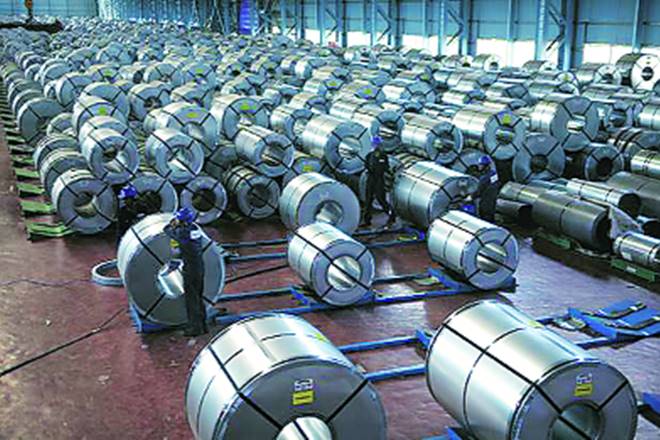The government has cut the export duty on steel products and iron ore with effect from Saturday in order to provide a fillip to the domestic steel industry and boost exports.
Besides, import duty on anthracite, coking coal and ferronickel – used as raw material in the steel industry – has been hiked, per a finance ministry notification.

“Domestic Steel Industry is grateful to the Hon’ble Prime Minister of India for taking the decision to withdraw the export duty imposed on Iron and Steel items on May 21, 2022. We are also thankful to the hon’ble Union Ministers of Home, Finance, Commerce, and Steel for supporting the Industry. This will re-energise and further motivate the industry to move forward with full confidence to put the steel sector towards an inclusive growth path”, said Dilip Oommen, President, Indian Steel Association and, CEO, ArcelorMittal Nippon Steel India and Executive Vice President, ArcelorMittal
The export duty concessions and import tax have been restored after a gap of six months. In May, the tariffs were tweaked in the wake of a sharp and steady rise in the prices of steel and in order to augment the availability of both finished steel as well as raw materials required for steel manufacture.

Vivek Lohia, Managing Director, Jupiter Wagons Limited said, “The Government’s move to scrap the export duty on steel, iron ore has come as a major relief and will create a growth story for the steel industry. The industry is extremely delighted and we welcome this move, it was long anticipated, and now it has finally come through. We are certain that it will provide a fillip to the steel industry. The move will help bring the demand supply balance and it will prove as a great trigger for domestic players to re-establish and expand their exports.”
With effect from Saturday, exports of specified pig iron and steel products as well as iron ore pellets will attract ‘nil’ export duty. Also, export duty on outward shipment of iron ore lumps and fines with less than 58 per cent iron content will be ‘nil’.
In the case of iron ore lumps and fines with more than 58 per cent iron, the rate of duty will be 30 per cent. As per the notification, import duty on anthracite/PCI, coking coal and ferronickel has been hiked to 2.5 per cent, while for coke and semi-coke it has been raised to 5 per cent, from ‘nil’ earlier.

Brij Bhushan, Vice Chairman and Managing Director – Shyam Metalics & Energy Ltd, said, “We welcome this move as this is a very progressive step towards reviving the entire steel industry. The previous imposition of export duty by the government was taken inorder to keep inflation in check and boost the domestic availability. The industry was hoping for this change as it did increase the uncertainty in the overseas market. We expect the government to continue with their stance of such relaxed rules as this is only going to help the industry in the long run.”
The duty cut follows a meeting of Steel Minister Jyotiraditya Scindia with Finance Minister Nirmala Sitharaman earlier this week. The meeting was attended by Revenue Secretary designate Sanjay Malhotra, among other senior officials.
The finance ministry had in May hiked the export duty on pig iron and steel products to 15 per cent from ‘nil’, a move which was intended to discourage exports and increase domestic availability to help lower prices.
The tax on export of iron ores and concentrates was hiked to 50 per cent from 30 per cent, while on iron pellets a 45 per cent duty was imposed. Steel industry has been demanding a rollback of the duties, saying local demand was not sufficient for domestic production.
